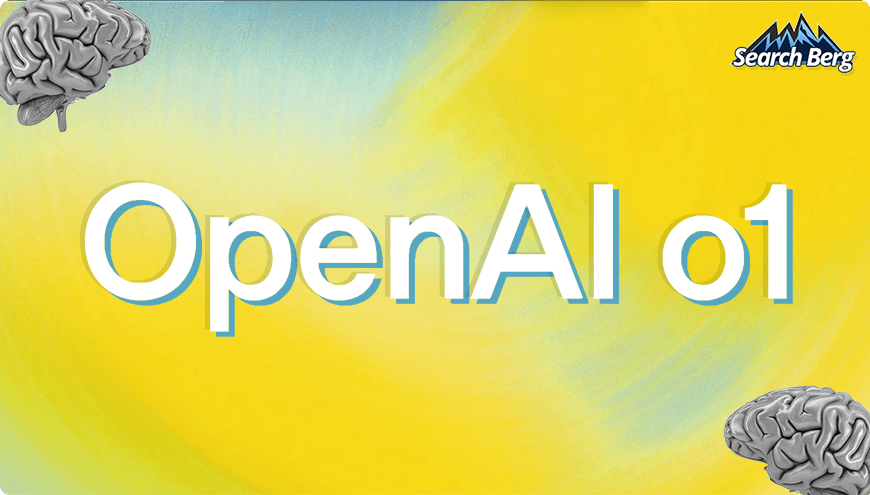OpenAI’s New ‘o1’ Model Claims to Outperform Humans in Complex Reasoning
Is it time for us to worry, or is this a promising new leap that we should be excited for?
Highlights:
- OpenAI makes a bold claim that their new language model, o1, can match or even surpass human performance in complex reasoning tasks.
- Potential implications across various fields, including education, research, and industry, revolutionizing learning, scientific discovery, and AI development.

While OpenAI took the world by storm for its innovative chat feature, ChatGPT, and subsequent releases, such as SearchGPT, it’s now back with a bang with the “o1” model.
The company has unveiled its latest language model, “o1,” which it claims possesses exceptional complex reasoning capabilities that surpass even human performance in certain areas, including but not limited to programming and scientific knowledge.
Major Claims Made by OpenAI Regarding Their o1 Model’s Capabilities
According to OpenAI, o1 has achieved remarkable results on various standardized tests. For instance, the model reportedly scored within the 89th percentile on competitive programming challenges on Codeforces, a platform frequented by professional programmers.
Additionally, the o1 model allegedly surpassed the average human subject matter expert holding a PhD in physics, chemistry, or biology on a benchmark exam, indicating that this AI model can outperform humans in reasoning.
But What Enables this AI Model to Function This Way?
The secret sauce behind OpenAI’s o1 model’s capabilities and alleged reasoning prowess lies in its reinforcement learning process. This method essentially trains the model to break down complex problems into smaller, more manageable steps, mimicking the human approach to problem-solving.
By simulating human-like step-by-step logic, correcting errors along the way, and refining its strategies as needed, the o1 model is able to develop a deeper grasp of the underlying principles and relationships at play.
While these claims are undeniably impressive, it’s important to approach them with a critical eye. While OpenAI’s news and evidence are promising, it’s essential to await further evaluation by the broader scientific community and more unbiased stakeholders. Independent verification and real-world testing are crucial before definitively determining o1’s true abilities and beliefs that AI is capable of outperforming humans in reasoning.
Potential Ramifications and Complications of this AI Model
The potential ramifications of these claims, if validated, are truly staggering. For instance, when it comes to education, the o1 model could revolutionize how students learn intricate subjects by providing personalized guidance and feedback on a massive scale. Within the research sector, the model could assist scientists in dissecting vast datasets and uncovering new patterns and insights. And in its own industry, o1 has the potential to be harnessed for developing more sophisticated AI systems for tasks like natural language processing, machine translation, and drug discovery.
However, the true impact of OpenAI’s advancements in AI reasoning remains shrouded in uncertainty. While its performance on standardized tests is undeniably impressive, assessing its capabilities in real-world situations is still very necessary.
It’s worth asking: Can it navigate ambiguity and uncertainty in a manner comparable to human intelligence? Does it have the ability to solve problems that haven’t been previously fed to it?
This is why it’s important for businesses to work with SEO experts who focus on creating quality content to help them improve their web presence for organic traffic, generating value for their readers. It’s an essential step in ranking higher and learning to leverage AI for quality content and optimization. Schedule a consult with us to get started!
Related: ChatGPT for SEO Content Creation: What Are The Drawbacks?
Furthermore, concerns exist regarding potential biases and limitations inherent to language models like o1. These models are trained on colossal datasets of human-generated text, which can inadvertently perpetuate harmful stereotypes and biases. Addressing these issues will be critical as AI systems like o1 become more ubiquitous.
OpenAI’s pronouncements and news regarding the capabilities of its new o1 model are undeniably ambitious. While the company’s evidence is promising, it’s vital to maintain a critical perspective and await further evaluation by the broader scientific community. If o1 can live up to its potential, it could represent a significant leap forward in the evolution of artificial intelligence.
Learn How to Hack AI Models for Your Benefit
Invest in SEO services that help you identify gaps and stay relevant in the world of AI.
No spam, just expert advice!














